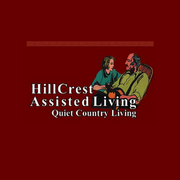How Does Managing Diabetes Change as You Age?

Diabetes always requires careful management. However, monitoring and caring for the condition becomes even more critical for senior care residents. Being diabetic affects the body differently as you age, so older adults can benefit from understanding how to alter and improve their treatment plan. Below are some of the most common symptom changes in seniors and how to partner with an assisted living community for a better quality of life.
How Care & Symptoms Evolve
First, seniors must address the life changes that affect the way they manage their blood sugar. Some older adults develop hearing or eyesight difficulties. They could also receive a diagnosis of Alzheimer’s, dementia, or depression. These conditions make it more difficult to interpret a doctor’s instructions or handle blood sugar monitoring. An attentive senior care team is necessary to make sure people with physical, mental, or emotional challenges receive the medical help and support they need.
 Older adults with diabetes may also have new or enhanced health challenges, including an increased risk of suffering from kidney and cardiovascular damage, a higher chance of experiencing cognitive decline, and a more significant potential of getting a vision loss condition called diabetic retinopathy. While not everyone will develop these issues, regular health exams are an excellent way to assess personal risk and create proactive treatment schedules.
Older adults with diabetes may also have new or enhanced health challenges, including an increased risk of suffering from kidney and cardiovascular damage, a higher chance of experiencing cognitive decline, and a more significant potential of getting a vision loss condition called diabetic retinopathy. While not everyone will develop these issues, regular health exams are an excellent way to assess personal risk and create proactive treatment schedules.
What You Can Do
In addition to regular visits with primary care doctors and endocrinologists, you can enlist help from your community’s on-site nurses. Assistance with blood sugar level monitoring, as well as exercise and diet management, help to reduce the risk of developing diabetes-related complications. Additionally, annual eye exams and hearing tests can detect changes, so you can begin managing any issues that arise.
An attentive assisted living staff should know residents well enough to notice cognitive or emotional changes. They should also perform regular evaluations to ensure the people they care for can still take their medication and test their blood sugar as directed. If you or your family member has any concerns, it’s important to share them with the retirement home medical team. By working together, senior care assistants, nurses, and doctors can minimize difficulties with managing symptoms.
A hallmark of a high-quality retirement home is how they keep seniors healthy as their medical conditions change. Hillcrest Assisted Living of Boone County, MO, has a full-time LPN and part-time RN on staff, and they will help their assisted living residents manage diabetes as they age with techniques such as diet management. To learn more about what makes their senior care second to none, call them at (573) 696-3201. For information about their services and facility, visit their website.
About the Business
Have a question? Ask the experts!
Send your question

